Let’s Talk About Post-Traumatic Stress Disorder
Help raise awareness about post-traumatic stress disorder (PTSD) by sharing information and materials based on the latest research. Share science. Share hope. https://go.nih.gov/xQyJwgh #shareNIMH

An official website of the United States government
Here’s how you know
Official websites use .gov
A .gov website belongs to an official government organization in the United States.
Secure .gov websites use HTTPS
A lock ( ) or https:// means you’ve safely connected to the .gov website. Share sensitive information only on official, secure websites.
Due to current HHS and NIH restructuring, some content on nimh.nih.gov is not being updated regularly. Please refer to clinicaltrials.gov and nih.gov for up-to-date information on NIH research.
Transforming the understanding
and treatment of mental illnesses.
Use these resources to raise awareness about PTSD.

Post-traumatic stress disorder (PTSD) develops in some people who have experienced a shocking, scary, or dangerous event. Nearly everyone experiences a range of reactions after a traumatic event, yet most people recover from initial symptoms naturally. Those who continue to experience problems may be diagnosed with PTSD. Anyone can develop PTSD, including children, teens, and adults, who have been through physical or sexual assault, abuse, accident, disaster, war or combat, or other serious events. For more information on PTSD, visit the health topic page or view the available brochures.
Help raise awareness about PTSD by sharing information and materials based on the latest research.
Download and share these messages to help spread the word about post-traumatic stress disorder. You can copy and paste the text and graphic into a tweet, email, or post. We encourage you to use the hashtag #shareNIMH in your social media posts to connect with people and organizations with similar goals. For more ideas on how to use these resources, visit our help page.
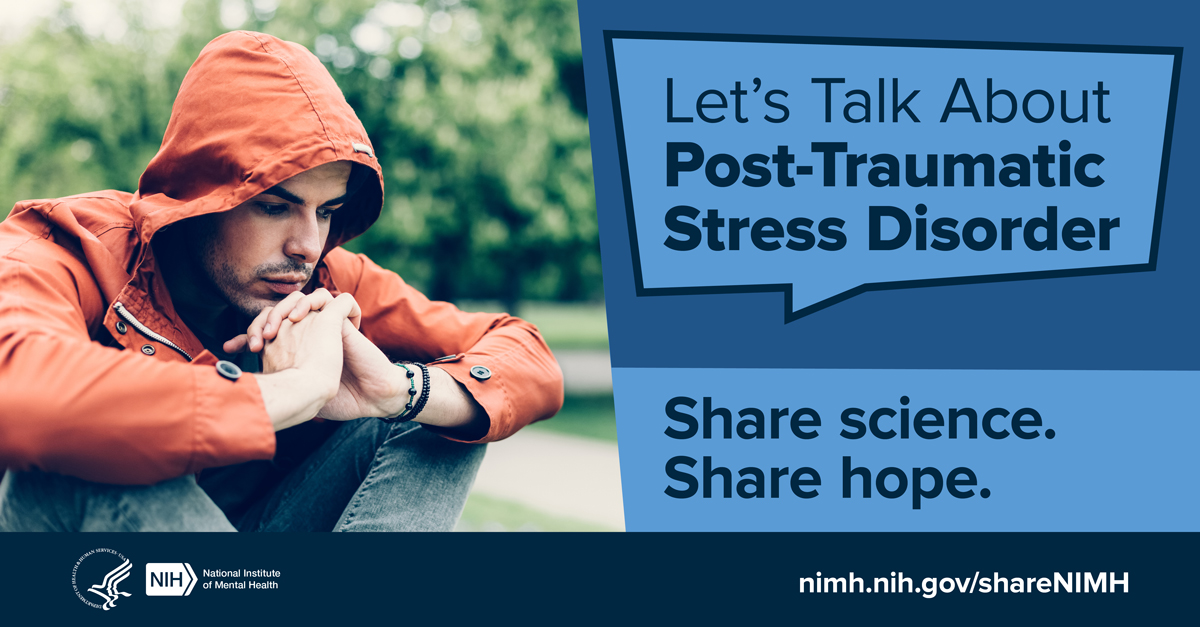
Help raise awareness about post-traumatic stress disorder (PTSD) by sharing information and materials based on the latest research. Share science. Share hope. https://go.nih.gov/xQyJwgh #shareNIMH
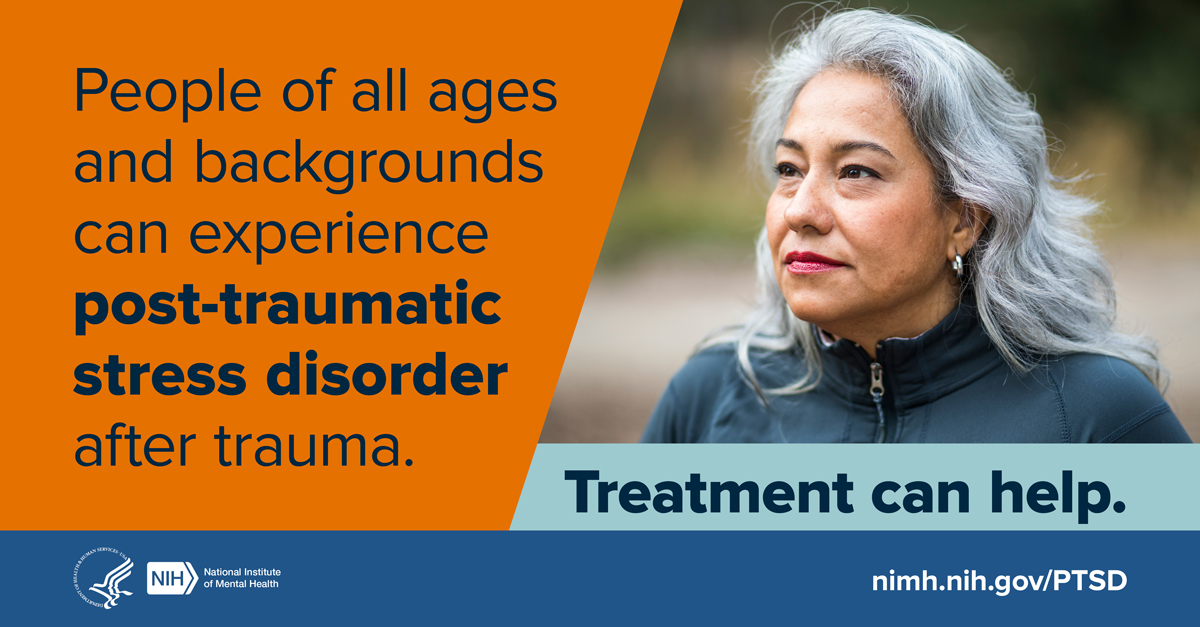
Post-traumatic stress disorder (PTSD) affects people in different ways. It's important for anyone with PTSD to be treated by a mental health professional who is experienced with PTSD. Learn about treatments at https://go.nih.gov/JrlMVuA #shareNIMH
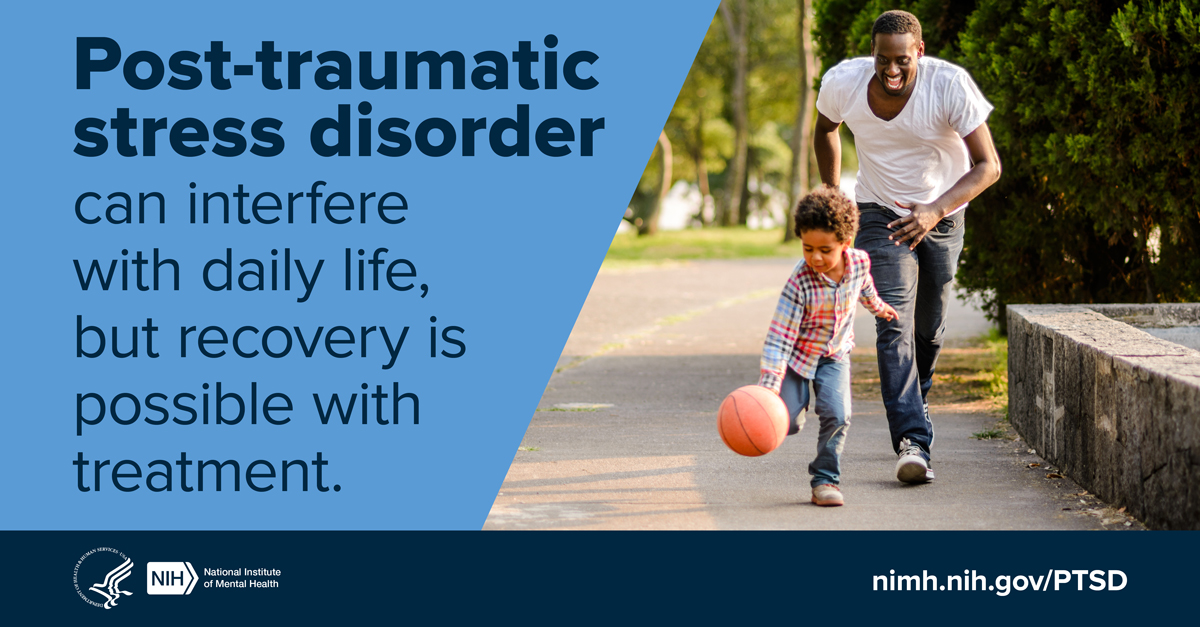
Post-traumatic stress disorder (PTSD) is a disorder that develops in some people who have experienced a shocking, scary, or dangerous event. Anyone can develop PTSD at any age. Learn the signs and symptoms at https://go.nih.gov/JrlMVuA . #shareNIMH
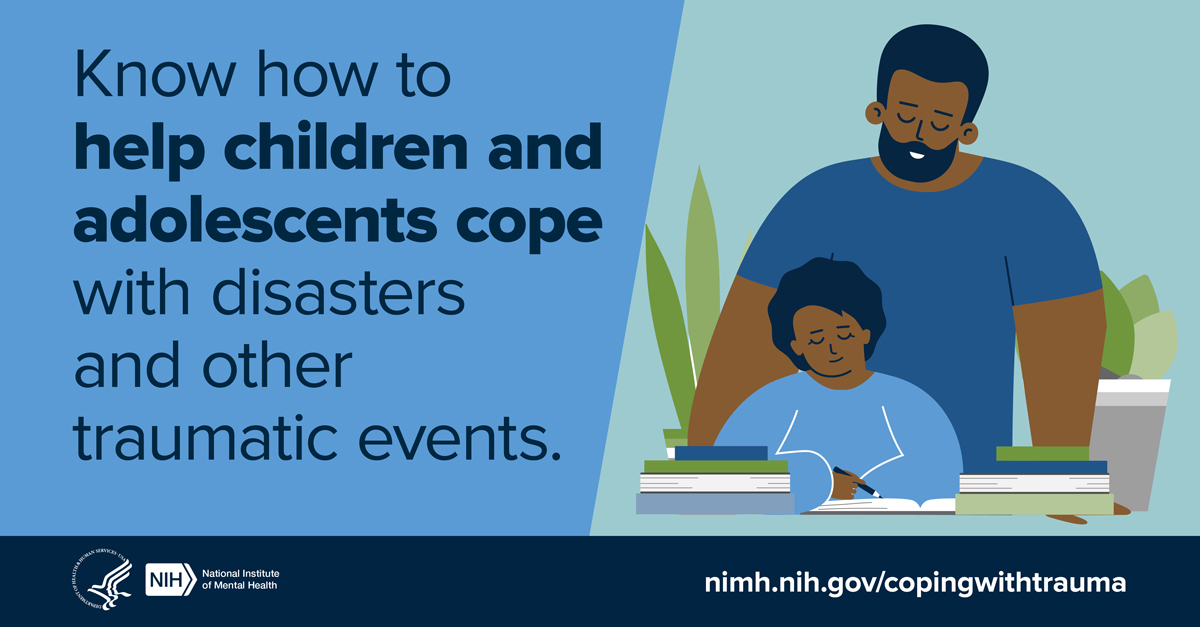
Learn what caregivers and family members can do to help children and adolescents cope with traumatic events. https://go.nih.gov/AfQz27c #shareNIMH
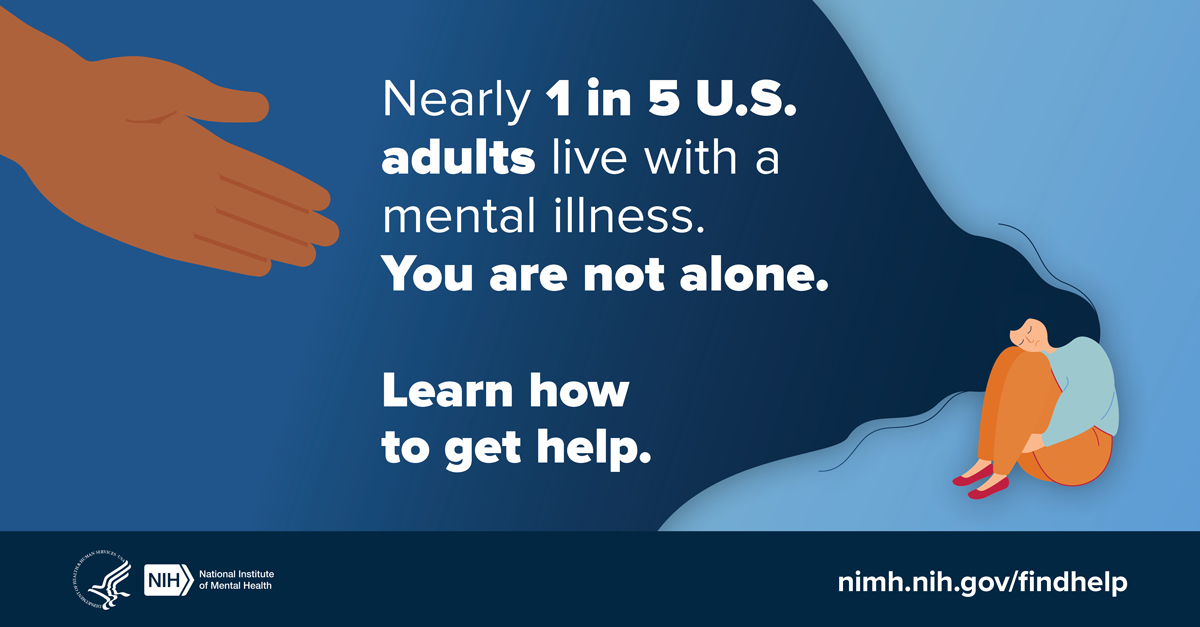
If you or someone you know has a mental illness, is struggling emotionally, or has concerns about their mental health, use these resources to find help for yourself, a friend, or a family member: https://go.nih.gov/Fx6cHCZ . #shareNIMH
Last Reviewed: May 2024